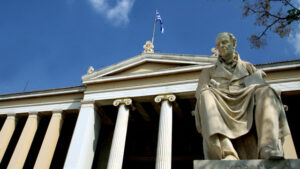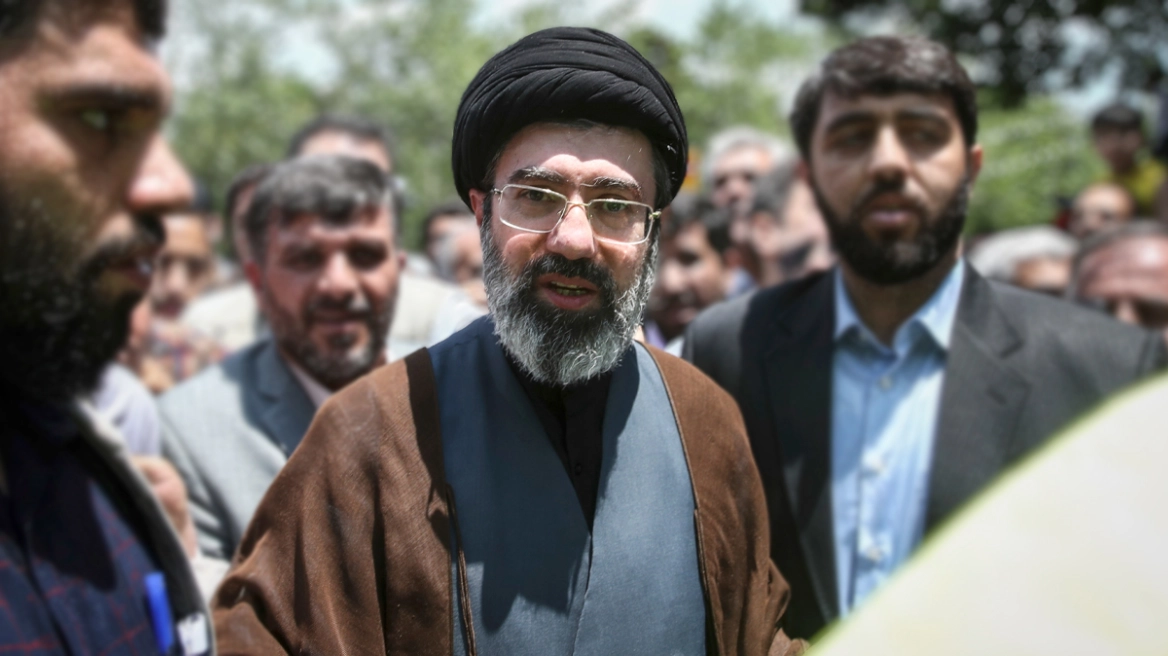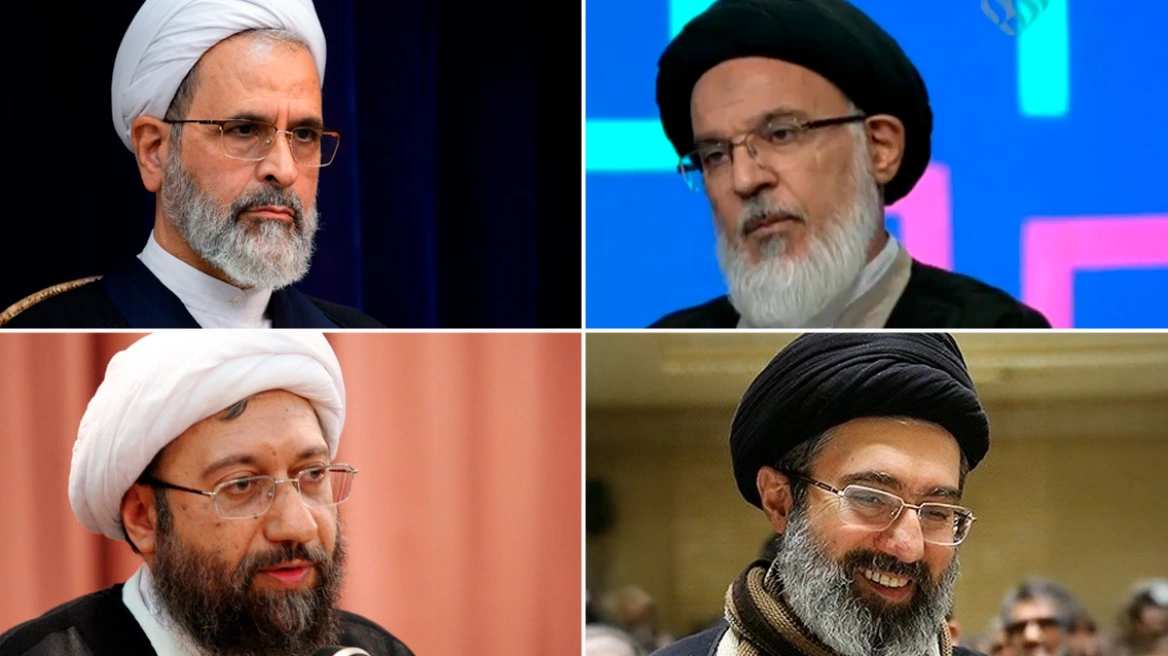With the aim of fostering collaborations between academic institutions from America and Greece, and particularly to increase the number of Greek and American students studying in their respective countries, the Pharos 3.0* program was organized by the Forum on Education Abroad.
“We are excited to partner with the U.S. Embassy in Athens for these initiatives, which are an important step toward building stronger connections between the U.S. and the global education community,” said Melissa Torres, President and CEO of the Forum on Education Abroad, adding: “Through these partnerships, we intend to provide students and educators with the tools they need to succeed in an increasingly interconnected world.”
Pharos 3.0* was attended by representatives of the rectors of Greek universities and representatives of institutions and organizations for Education Abroad (Study Abroad) from the United States. The event took place with the support of the U.S. Embassy in Athens and the funding through a special fund for the Promotion of Education Abroad from the U.S. Department of State.
With an emphasis on attracting American students to Greek public universities to participate in short or long-term study programs, the Pharos 3.0* program, hosted at the College Year in Athens facilities, was held as a continuation of the successful Greek-American cooperation in the field of Higher Education.
The aim of the program is to inform and bring together the academic institutions of the two countries in order to enhance relationship building and networking between them with many significant benefits for the countries and students. The central themes that emerged had to do with the requirements for studying abroad, getting to know organizations that mediate between universities and facilitating internationalization.
The event was attended exclusively by representatives of the rectors of the Greek universities and representatives of institutions and organizations for Study Abroad from the USA. Melissa Torres, President and CEO of The Forum on Education Abroad, Maria G Olson, Chargé d’Affaires of the U.S. Embassy in Athens, Heidi Manley, Head of USA Study Abroad, U.S. Department of State, Professor Nikolaos Papaioannou, Secretary General of Higher Education, Ministry of Education, who delivered a welcome address on behalf of the Minister of Education, Kyriakos Pierrakakis.
The expectation for expanding educational opportunities between Greece and America
The vision of the American Embassy to expand educational opportunities for Greek and American youth was mentioned by Maria dG Olson, Chargé d’Affaires of the U.S. Embassy in Athens. On the occasion of the U.S. Embassy’s long-standing and consistent initiatives that promote international education and cultural exchanges, Maria dG Olson said: “I come from a rural area of the United States. I grew up in a small rural community in Michigan and studied at a public university, the University of Wisconsin. Part of my university program was to study for a year in the south of France, and this experience opened my horizons and allowed me to see the world outside of my small place. I want to congratulate you on the work you are doing because it is very important for our young people. In this globalized world, it is important to develop interpersonal relationships.
She made special mention of the partnerships, which have already flourished after the respective events of previous years.
“Two years ago, at the Inaugural Pharos Conference, we welcomed in Greece a historic delegation of 70 representatives from 30 American colleges and universities – it was the largest delegation ever to participate in an international academic collaborations program,” she said, adding that in partnership with the Greek Ministry of Education, a delegation of Greek university representatives traveled for the first time to the largest international education fair, NAFSA.
Reflecting on the academic landscape about American students’ preferences for countries where they would like to attend at least a short program of study – data collected in the annual Open Doors report – Olsen stressed that Greece is now in the top ten when in previous years our country was in 17th place. “American students are mainly interested in scientific fields such as entrepreneurship, commerce, environmental research, and others. Just a few days ago, Columbia University inaugurated its 10th Global Center in Athens.”
“But welcoming Greek students to America is not new either,” he noted, referring to the College Year in Athens, which in its 60 years of operation has welcomed thousands of students. He expressed special thanks to the president of the organization, Alexis Filaktopoulos.
Alexis Aleksei Alexandre Filaktopoulos, who gave a special thanks to the President of the University of Athens.
The prevailing trend today among American students is to go abroad to study for shorter periods of time.
As for the economic aspect of academic exchange programs, according to Olsen, the impact of Greek students on the American economy in 2022 increased to more than $100 million. But the thousands of American students who come to Greece to study also benefit economically both the Greek universities themselves and the local communities where they are located, as the boost to the local economy through accommodation, books, entertainment, and excursions – in addition to tuition fees – is significant.
Greek universities give priority to internationalization
During the workshop, participants from the US – Penn State University (Abington), Texas A&M University, Morgan State University, Lehigh University, and Ball State University – had the opportunity to explore the landscape of higher education in Greece and the benefits of any collaboration with Greek HEIs, with the 3.0 event being designed to promote effective networking and the cultivation of partnerships. On the Greek side, panelists included representatives from the Universities of Ioannina, Panteion and Polytechnic University of Crete, while participants from other Greek universities also took the floor to present the educational institutions from which they come.
The priority given to internationalization, the high level of study and research, experiential learning, the safe environment, the excellent hospitality, the affordable cost of living and the experience of Greek culture as a whole, make up the strong academic profile of Greece as an attraction for American students.
In fact, as it was pointed out, our country does not only appeal to those interested in humanities studies but to all fields.
The Rector of the Technical University of Crete, Professor Michael Zervakis, pointed out that “international students can adapt to different systems, to understand different ways of thinking.” Coming from an HEI with a strong emphasis on research, he stressed that “students from American universities can familiarise themselves with the European way of scientific research. Also, because they are able to go into the laboratories to work with other students – unlike what happens in America or Canada, where studies are more individual-based – young people coming to Greece learn that we focus on teamwork and collaborative projects. It’s a value that students can take away when they leave and apply in their own country.”
The 7th Europe, Middle East, and Africa International Conference of the Forum for Education Abroad
Pharos 3.0* was succeeded by the 7th International Conference of the Forum for Education Abroad’s Europe, Middle East, and Africa (EMEA) in Athens with the participation of more than 400 universities and educational institutions from the Americas and the wider Eastern Mediterranean region, including Greek universities. The conference aims to create a space for dialogue on issues affecting education abroad, especially in areas with a long history of mobility and migration.
In particular, the conference aimed to promote international cooperation and educational exchanges in Higher Education and especially the dissemination of relevant good practices in order to achieve the best quality and maximum benefits for the participants.
In his opening speech, the US Ambassador to Greece, Mr. George Tsounis, highlighted, among other things, the importance of international academic cooperation and the need for these programs to promote democratic principles and social values, such as inclusiveness to provide equal opportunities to underprivileged social groups. As Mr.Tsounis stressed: “The world will be a better place if everyone has equal opportunities. We participate, we learn, we develop understanding and empathy. This interaction is extremely important. This is why I am proud to be here today. It is about international connectivity and the internationalization of education, where students from all over the world can study in countries without borders. This process enhances understanding and offers more opportunities for all of us. That is the world we should be striving for, and that is why forums like this are so important.”
Next, the Secretary General of Higher Education, Professor Nikolaos Papaioannou, in his speech representing the Minister of Education, Religious Affairs and Sports, Mr. Kyriakos Pierrakakis, focused on the recent reforms that the Ministry of Education has undertaken to ensure the quality, internationalization, and extroversion of higher education and praised the participation of the 15 Greek universities in the European University Alliances (EUAs). He also stressed the benefits of international exchange activities with institutions from all over the world – both for Greek HEIs and for the country at all levels and encouraged the work of the Conference to record good practices.
Study in Greece at the EMEA Conference with emphasis on Strengthening International Partnerships
In the framework of the Conference, the national body for the internationalization of universities, Study in Greece, organized a workshop entitled “Promoting International Partnerships for the Enhancement of Student Mobility in Greece”.
The workshop highlighted the success of Greek universities in developing international partnerships and offering successful student mobility programs, emphasizing the country’s growing influence in the field of global education.
The presentation was attended by Professor Nancy Pouloudi, Vice Dean for International Relations and Partnerships at the Athens University of Economics and Business, Professor Sophia Papaioanou, Vice Dean for Academic Affairs, International Relations and Extroversion at the National and Kapodistrian University of Athens, Evangelos Katsarelis, Director of Programs and Events at the Center for Hellenic Studies at Harvard University and Theodoros Papaioannou, Executive Director of Study in Greece.
In addition, representatives from Greek academic institutions took part in various activities during the EMEA Conference.
About the Forum on Education Abroad
The Forum on Education Abroad is a 501(c)(3) non-profit organization recognized by the U.S. Department of Justice and the Federal Trade Commission as a Standards Development Organization for Education Abroad. The Forum is hosted by its strategic partner, Dickinson College. It envisions a future where education abroad is an integral part of the mission of higher education, meets the Standards of Good Practice, and is accessible to all students. The Forum’s mission is to cultivate educators who promote high-quality education abroad experiences that inspire curiosity, impact lives, and help create a better world.
Ask me anything
Explore related questions





